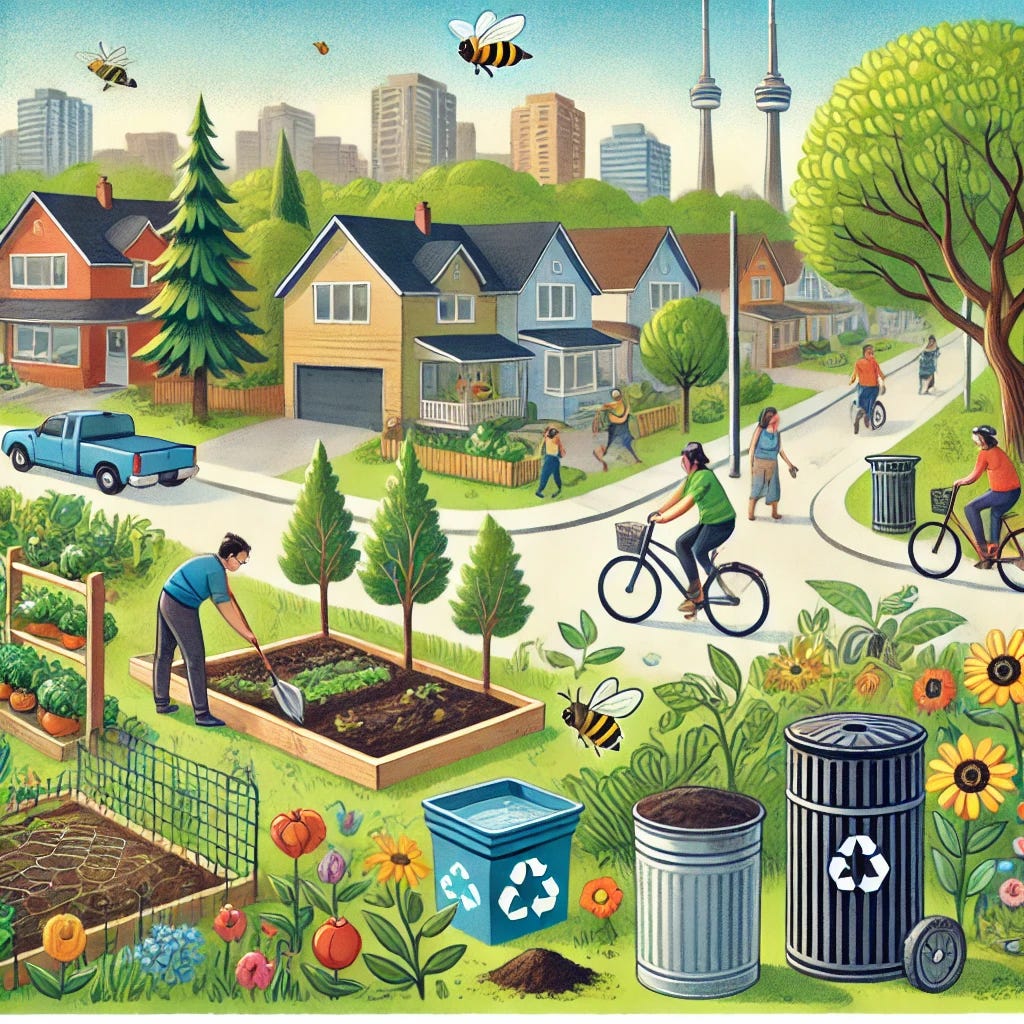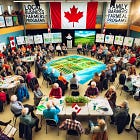Practical Alternatives to Global Sustainability Programs
Report: Practical Alternatives to Global Sustainability Programs
Prepared for: Canadian Municipal Council Review
Date: October 25, 2024
By: Margaret Hope Braun, KICLEI Canada
As a highly developed nation, Canada has the resources, expertise, and local knowledge to administer its own environmental stewardship initiatives without relying on oversight from international bodies such as the United Nations. Canadian municipalities are well-positioned to address local environmental priorities through community-driven programs that reflect regional needs and align with Canada’s unique cultural and economic landscapes.
Voluntary Local Environmental Stewardship Initiatives offer practical, cost-effective alternatives to global sustainability programs, focusing on local impact over international compliance. Many of these initiatives are already familiar to residents and can be scaled to benefit communities further without the extensive data collection or administrative costs proposed by U.N.-aligned directives like those from the Federation of Canadian Municipalities (FCM) and the ICLEI’s Partners for Climate Protection (PCP) program. While environmental protection is essential, programs like the PCP introduce administrative challenges that may redirect resources from core local priorities. A critical review of this program’s impacts is detailed in the report, Recommendation to Withdraw from the FCM-ICLEI Partners for Climate Protection (PCP) Program by M. Braun (2024).
Tree Planting and Green Space Development
Community-led tree planting efforts improve air quality, support biodiversity, and foster resident engagement. These projects are easy to scale with volunteer support and modest municipal investment, creating green spaces that enhance urban and rural areas alike.Local Food Production
Community gardens and farmers' markets strengthen local food security and support small-scale agriculture while promoting sustainable practices. These initiatives bring fresh, local produce to communities, supporting residents and regional farmers without complex oversight.Waste Reduction Programs
Composting initiatives and reuse centers encourage responsible waste management and recycling. With minimal support from municipalities, these programs help reduce landfill reliance and foster a culture of environmental stewardship among residents.Hazardous Waste Drop-Offs
Regular hazardous waste drop-off events enable safe disposal of materials like chemicals and electronics, protecting local water and soil quality. These drop-offs are effective, low-cost solutions that benefit public health and reduce environmental contamination.Water Conservation Initiatives
Simple water-saving techniques, such as rainwater collection and xeriscaping, help residents conserve water, reducing demand on municipal systems. These initiatives are low-cost, impactful, and suited to Canada's regional climate needs.Pollinator Habitats
Pollinator-friendly gardens support bees, butterflies, and other beneficial species crucial to local ecosystems. Given that 89% of Canada remains uninhabited wilderness, these habitats should be prioritized in populated areas where pollinators can directly benefit agriculture and local biodiversity.Wildlife Conservation Projects
Habitat restoration projects educate residents, protect biodiversity, and support Canada’s natural heritage and should require minimal municipal resources. With 89% of Canada’s land uninhabited, additional land use restrictions and designations on private or municipal lands are generally unnecessary for conservation. Conservation efforts should prioritize designated wildlife reserves and specific areas with unique ecological significance, rather than broadly restricting land use.Transportation Options
Carpooling programs, bike-sharing, and safe pedestrian paths offer voluntary, transportation alternatives that help reduce congestion and emissions. However, given Canada’s climate and geography, affordable private vehicles remain essential for many Canadians, particularly in rural and suburban areas. These options should support residents’ choices without limiting access to or affordability of private vehicles.Resident Surveys
Simple, regular surveys allow municipalities to gather resident feedback on environmental initiatives, ensuring that programs align with local priorities. Unlike surveys designed to support global environmental mandates, these surveys should encompass the full range of municipal priorities, highlighting community-driven initiatives that operate independently of international oversight and are tailored specifically to local needs.
These community-focused programs demonstrate that Canadian municipalities do not require international oversight to achieve effective, meaningful environmental stewardship. With Canada’s resources and regional expertise, local governments can prioritize sustainable practices that directly benefit residents and maintain control over local land, resources, and policy direction.
By emphasizing voluntary, resident-driven programs, municipalities can pursue sustainability goals without the burdensome costs and administrative constraints of global frameworks, maintaining autonomy and directing resources where they are most impactful for Canadian communities.





Sounds quite utopian - but what we really need to address is what to do with all the pollution - especially the pollution coming down upon us in the form of toxic emissions from airplane and low grade ship bunker fuels.
We need to consider some kind of air quality and improved technology into this utopia creation for the reciprocation to those pollinator gardens and benefitting ecosystems in general, otherwise, they may not be able to revitalize.
We often forget to consider our biosphere in a 3D manner so I'm just suggesting, we can clean up the waste production like fuels being used and look at what we can do to minimize landfills and other garbage and waste issues of our past 70 years.
This will cost more to do, but the need for a healthy ecosystem is at the cost otherwise.
Investing in cleaner technologies that are effective in creating reciprocation with nature may be other means to support a healthier view on all things.
If we replaced the term and it's current definitions of "sustainability" for the term "reciprocity" this is the difference - with reciprocity, the balance is in the natural balance of things. especially where our natural resources are considered.
Couldn't find that resource info page, so I'll leave this here.
I ran across https://www.strongtowns.org'', a community first organization that may be of interest.
My first exposure to them was this link.
https://www.strongtowns.org/journal/2023/10/9/strong-towns-doesnt-seem-to-fit-on-a-political-spectrum-why-is-that